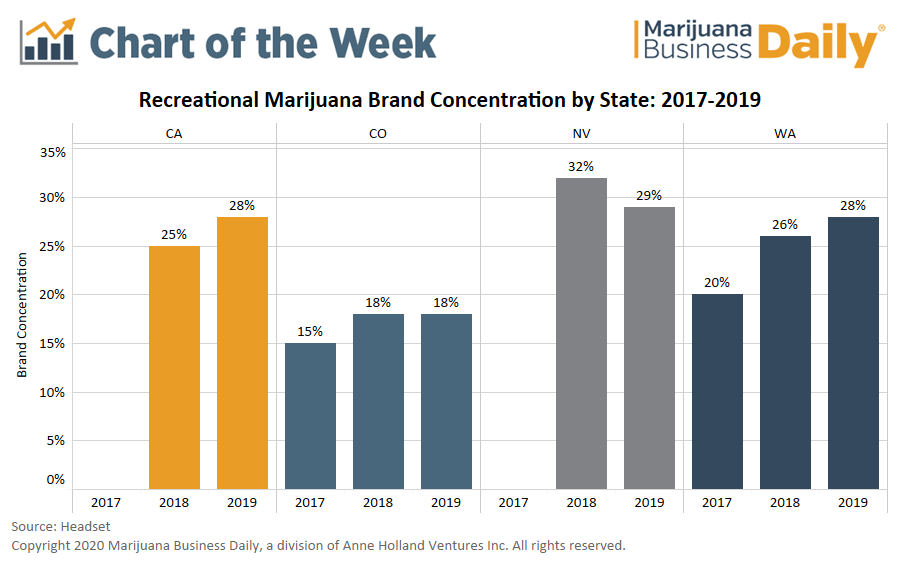A captive audience in search of digital distraction, combined with boosted cannabis demand during the COVID-19 pandemic, means Canada’s marijuana businesses have an opportunity to fine-tune their online marketing and branding strategies, marketing experts say.
Even though Canadian cannabis producers and retailers are largely excluded from traditional advertising by law, they can nevertheless employ some forms of digital marketing.
A group of Canadian cannabis marketing leaders offered Marijuana Business Daily a list of tips for the nation’s cannabis firms, including:
- Ensuring a digital media strategy is in place to start collecting consumer data.
- Taking care to keep digital messaging relevant and appropriate.
- Stepping back to consider and communicate core brand values during an uncertain time.
Reaping the benefits of digital marketing
For cannabis firms without a digital marketing and branding strategy already in place, now’s the time to invest in paid media, said Rebecca Brown, founder and CEO of Toronto-based marijuana marketing and brand consultants Crowns Agency.
“I think this is the moment for data and creativity in the cannabis sector,” Brown said.
“People are shopping online, in general, in record numbers. and people are glued to their screens, and our entire culture has shifted and become virtual in a week,” Brown added.
“There’s absolutely opportunity in spite of that, but what it means is that the smart use of digital channels is now an essential.”
She said online advertising inventory might be available for relatively low prices right now, since economic turmoil from the COVID-19 pandemic means some industries are trimming marketing budgets.
Cannabis firms with paid media programs underway are already reaping the benefits in terms of data about consumer preferences, Brown said.
“If you haven’t been doing that, go do it now,” said Brown.
“Start a pilot program, start buying media and look and make sure that you have either the internal or external capability to extract insight from that data to help you understand how to get better and smarter, both with your content and with the way you’re targeting your media and where you’re buying.”
Smart digital advertising could focus on top-level awareness or branding exercises or focus on driving engagement with a brand consumers already know, Brown said. That could mean sales down the line.
“People are buying cannabis right now,” she said, “and they have to make a decision about which brands they’re going to buy, or which products they’re going to buy.
“So I think that having a relationship with your consumer is a good idea, and I think it will contribute to sales.”
Explore messages that resonate in an uncertain time
At a time when consumers are turning to digital channels to replace face-to-face interactions, Brown recommends creative thinking about building online relationships with consumers.
“People are hungry for information, they’re hungry for entertainment, they’re hungry for connection. We’re seeing Zoom dance parties every night, Instagram concerts, live online exercise classes,” she said.
“I think that cannabis companies should be asking themselves, how can they support and participate in that activity in a way that’s compliant?”
Dessy Pavlova, an associated with Hill+Knowlton Strategies in Toronto, said Canadian cannabis retailers could broadcast their ability to serve consumers while maintaining public health measures.
“Let’s say, for those stores that do stay open, how are they making sure that everything is staying safe, sanitized?” she said.
Cannabis retailer Fire & Flower, which has stores in multiple provinces, is doing just that.
The company is using its digital channels – Twitter, Facebook and Instagram plus email promotions through its “Spark Perks” membership program – to communicate in-store safety measures for customers and staff, according to Chris Bolivar, vice president of strategic growth.
Bolivar said Fire & Flower’s digital channels also feature lighthearted but “respectful” lifestyle content such as spring-cleaning tips and activity suggestions for the housebound.
“It’s time like this where companies have a real opportunity to advance consumer trust with their brands,” said Bolivar, who also serves as co-chair of the Canadian Marketing Association’s working group on cannabis marketing.
Jenn Larry, president of Montreal-based marketing and brand strategy firm CBD Strategy Group, said the COVID-19 pandemic is a good opportunity for companies to show their customers the practical steps they’re taking during the crisis, including:
- Reducing shipping fees for medical cannabis clients.
- Absorbing excise tax.
- Selling products through retailers with click-and-collect capability.
“Keeping the content extremely relevant, keeping it real time, connecting it to the fears and the hopes of society, I think, is very important,” she said.
Brand strategy and messages to avoid
With cannabis now considered an essential service in most Canadian provinces, Larry believes the pandemic is also a good time for marijuana firms to think about their core values and communicate them to the public.
“(There’s) an opportunity now for brands to think about strategic perspective, what do we solve? Why do we really exist? And how is our operation – even if it’s rightsizing itself due to the market – how is it continuing to work towards solving the important things,” she said.
Larry said she was “discouraged by the cannabis companies that I saw, some of them in the United States, who felt it appropriate to make claims and guarantees about how CBD or cannabis is a COVID solution.”
Fire & Flower’s Bolivar said cannabis businesses should try to avoid any messages that could be construed as opportunistic during the pandemic.
“I think that because we are here as an essential service, we have a responsibility to deliver that. I just think it’s important for everyone in the (cannabis) category to be sensitive around that and be sensitive around timing.”
Since COVID-19 affects the respiratory system, Crown Agency’s Brown suggests now might not be the best time for cannabis firms to be promoting anything related to smoking.
“How can we help consumers consume in a responsible way?” she said.
“Probably edibles are a healthier choice in the COVID era. Can we do amazing online infused-cooking classes? Again, it’s that marriage of data and creativity that will see the advantage.”
Solomon Israel is a reporter for Marijuana Business Daily, based in Winnipeg. He can be reached at solomon.israel@mjbizdaily.com.
For more of Marijuana Business Daily’s ongoing coverage of the coronavirus pandemic and its effects on the cannabis industry, click here.







